Features of the Google Search Engine Results Page (SERP)

Google’s Search Engine Results Page (SERP) offers more than just a list of links. Its layout can change based on what you’re searching for, presenting various SERP features tailored to your needs. You might see different elements like featured snippets, shopping options, or local listings and also AI Overviews. Understanding these can help you navigate the results more effectively. This guide will help you identify and differentiate between the paid and organic results you encounter.
What are SERP features?
Search features are elements on a search engine results page (SERP) that provide information beyond the standard list of links. They include things like featured snippets, image packs, and knowledge panels. These features make it easier for users to quickly find answers and relevant information in search results.
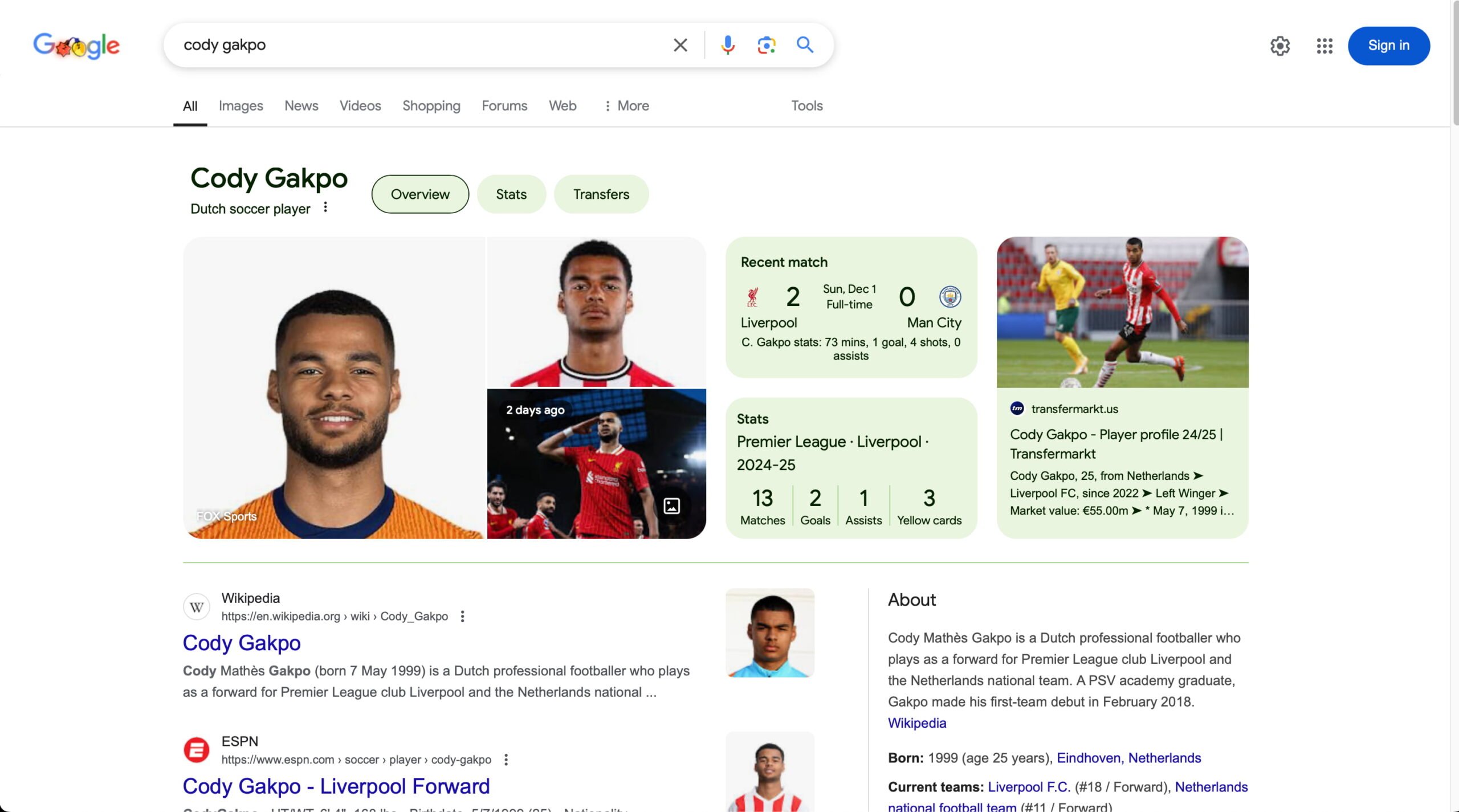
A new SERP feature: Google AI Overviews
AI Overviews are a new feature in Google’s search results. They use artificial intelligence to create concise summaries that answer user queries quickly. These summaries appear at the top of search pages, providing immediate information without the user needing to click through links, although links are provided. This feature helps users find the information they need faster and increases the visibility of diverse websites.
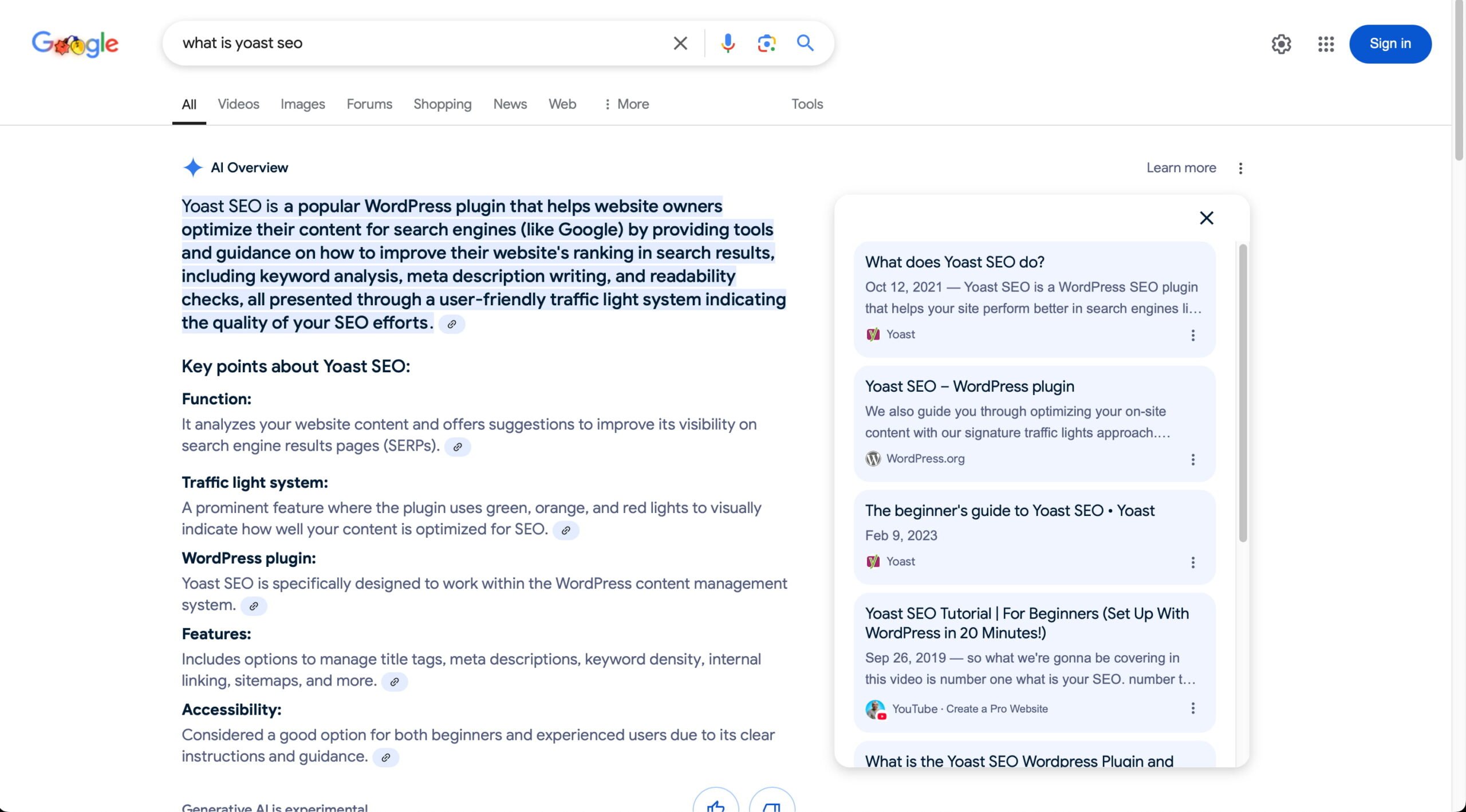
It depends on what you’re searching for
What the result page looks like largely depends on what you are searching for. If you’re searching for a product you can buy, Google will show shop results on the SERP. For example, when we searched for hockey equipment for an eight-year-old, Google showed us this:
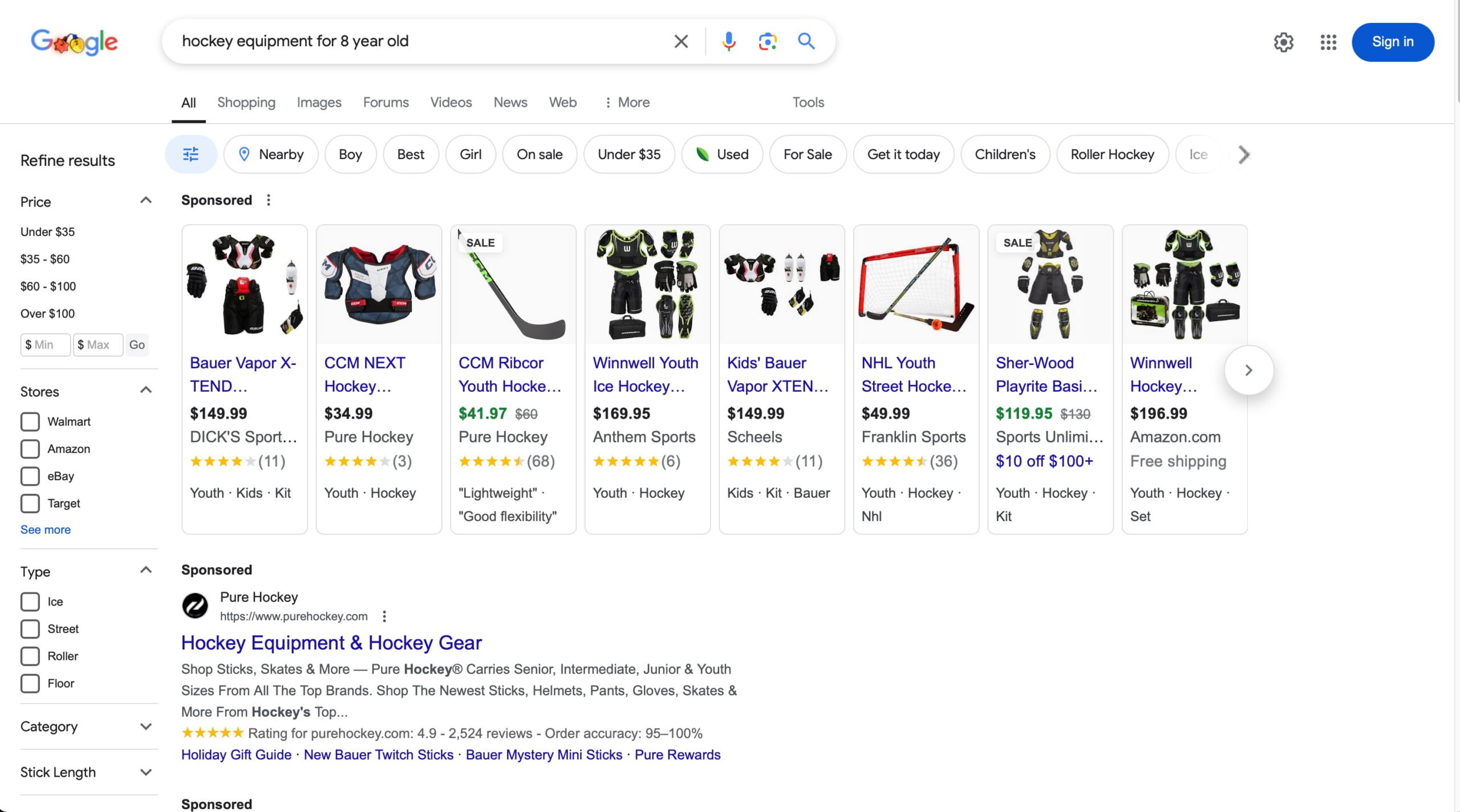
This results page starts with shopping results, with images on top. On the left-hand side, you will see all kinds of filters to fine-tune your product search as well. To enter the Sponsored section, you must pay Google – note the word ‘sponsored’ in the upper left corner. After those results, the first is an ad, which is another paid result. And then the organic results start.
However, if you’re searching for information about the planet Neptune – because your son is writing an essay about that – you’ll encounter a different-looking SERP:
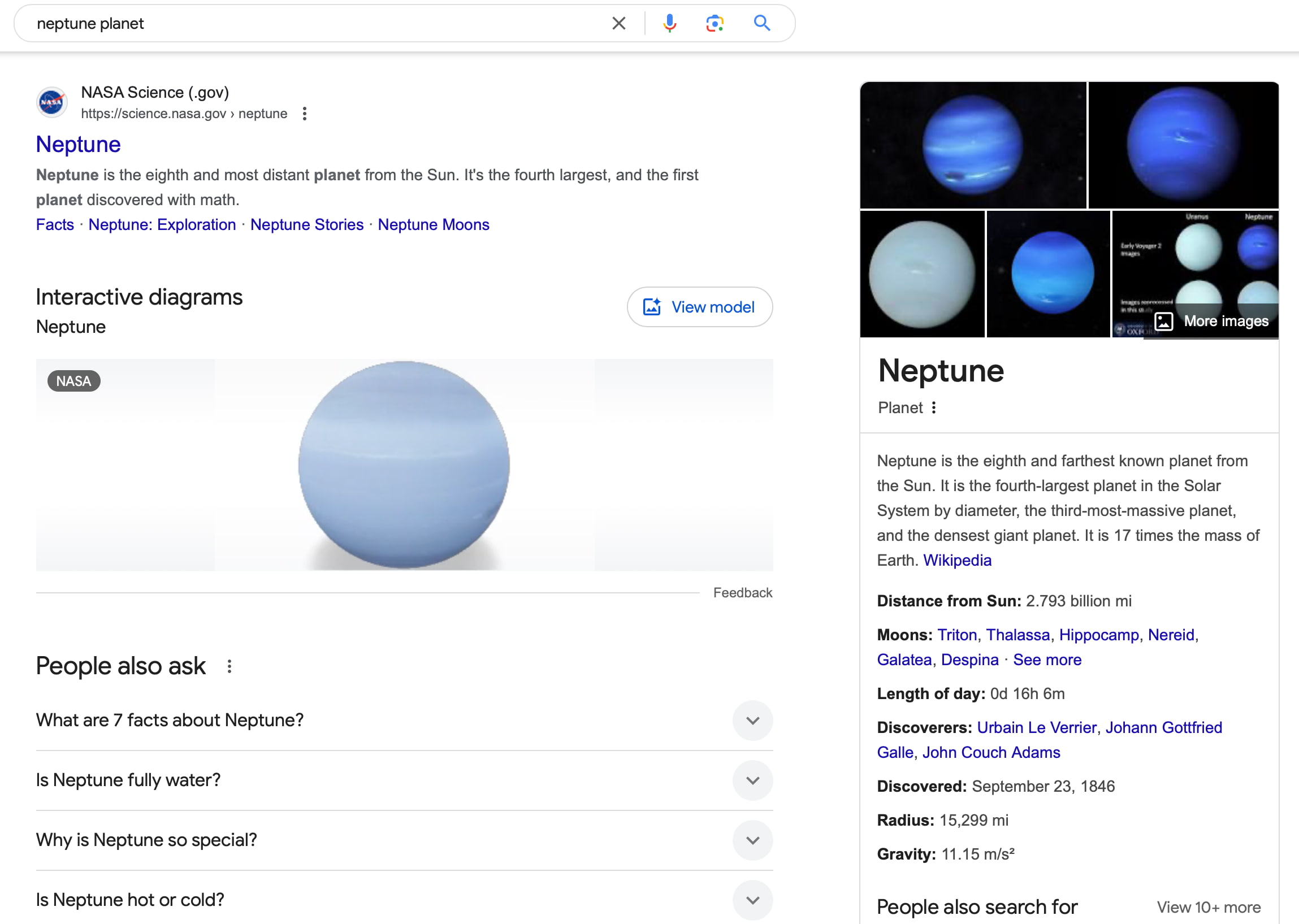
These search results do not show any paid or sponsored results. At the top, you’ll see an AI Overview for the topic, and on the right, you’ll notice a knowledge graph with lots of information about the planet Neptune. There’s even an interactive diagram to learn more about what Neptune looks like.
Read more: What is search intent? »
Browsing through the result page
The default page of Google’s search result is a page on which different results appear. Google decides which results fit your search query best. That could be ‘normal’ results, but also news results, shopping results or images. If you’re searching for information, a knowledge graph could turn up. When you’re searching to buy something online, you’ll probably get lots of shopping results on the default result page.

You can apply some filters on the search results yourself if you want to. You can, for instance, click on ‘images’ if you’re searching for an image. This allows you to browse through images only. You can also choose ‘shopping’, ‘maps’, ‘forums’, ‘videos’, ‘news’ and ‘more’.
Keep reading: How to get your Shopify store on Google »
Sponsored results and ads
Google shows both paid results and organic results. It can be pretty hard to notice the difference between the two. The ads usually appear on top of the search results. Sometimes it’s only one ad, but Google can show more ads as well. This depends on how many people search for a certain search term and who wants to pay for it.
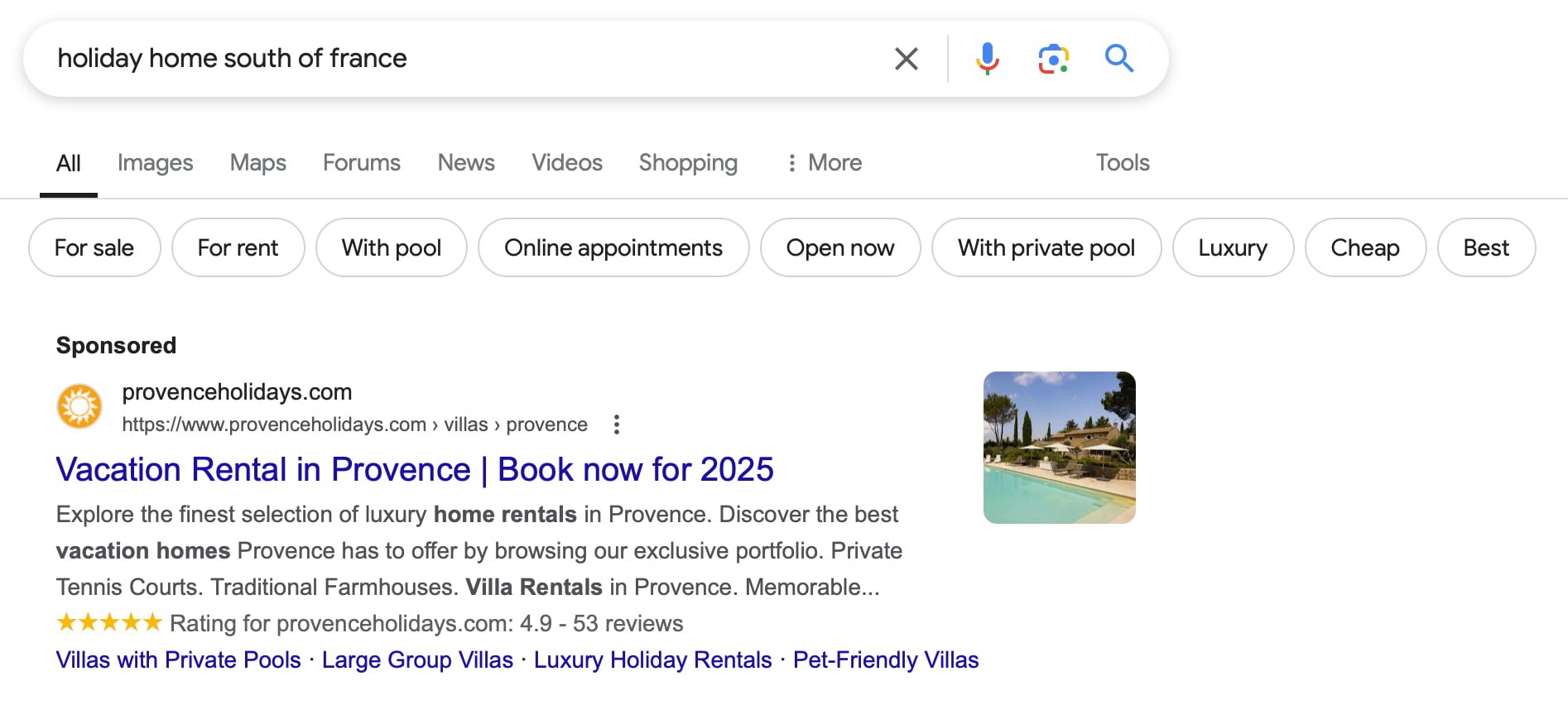
You’ll recognize the paid result by the word Sponsored shown in front of the link to the website. The shopping results in Google are also paid results: a company pays Google to appear in the shopping results. If you want to advertise on Google, you should check out Google Adwords.
Organic results
Google’s organic results are all non-paid results. According to Google’s algorithm, the organic results shown first are the best fit for the user’s search query. Search Engine Optimization (SEO) improves the chances of ranking in organic search results.
Snippets
The search result page consists of a number of snippets. A snippet is a result Google shows to the user in the search results. A ‘normal’ snippet usually looks like this:

Google shows the title in blue, the URL in grey, and a description of the page. You’ll also encounter rich snippets on the SERP. A rich snippet shows extra information between the URL and the description. A rich snippet looks like this:

In this snippet, a picture of the ice cream is added. You can see the recipe’s rating and the time it takes to prepare this type of ice cream. A rich snippet contains much more information than a normal snippet does.
Read on: What are rich snippets? »
Other elements on the SERPs
Besides snippets, images, videos, news results, shopping results and maps, Google also shows some other elements on the SERPs.
Knowledge Graph panel
The Knowledge Graph Panel appears on the right side of the search results. According to Google, this information is retrieved from many sources, including the CIA World Factbook and Wikipedia. Information from the Knowledge Graph is used to answer spoken questions in Google Assistant and Google Home voice queries.
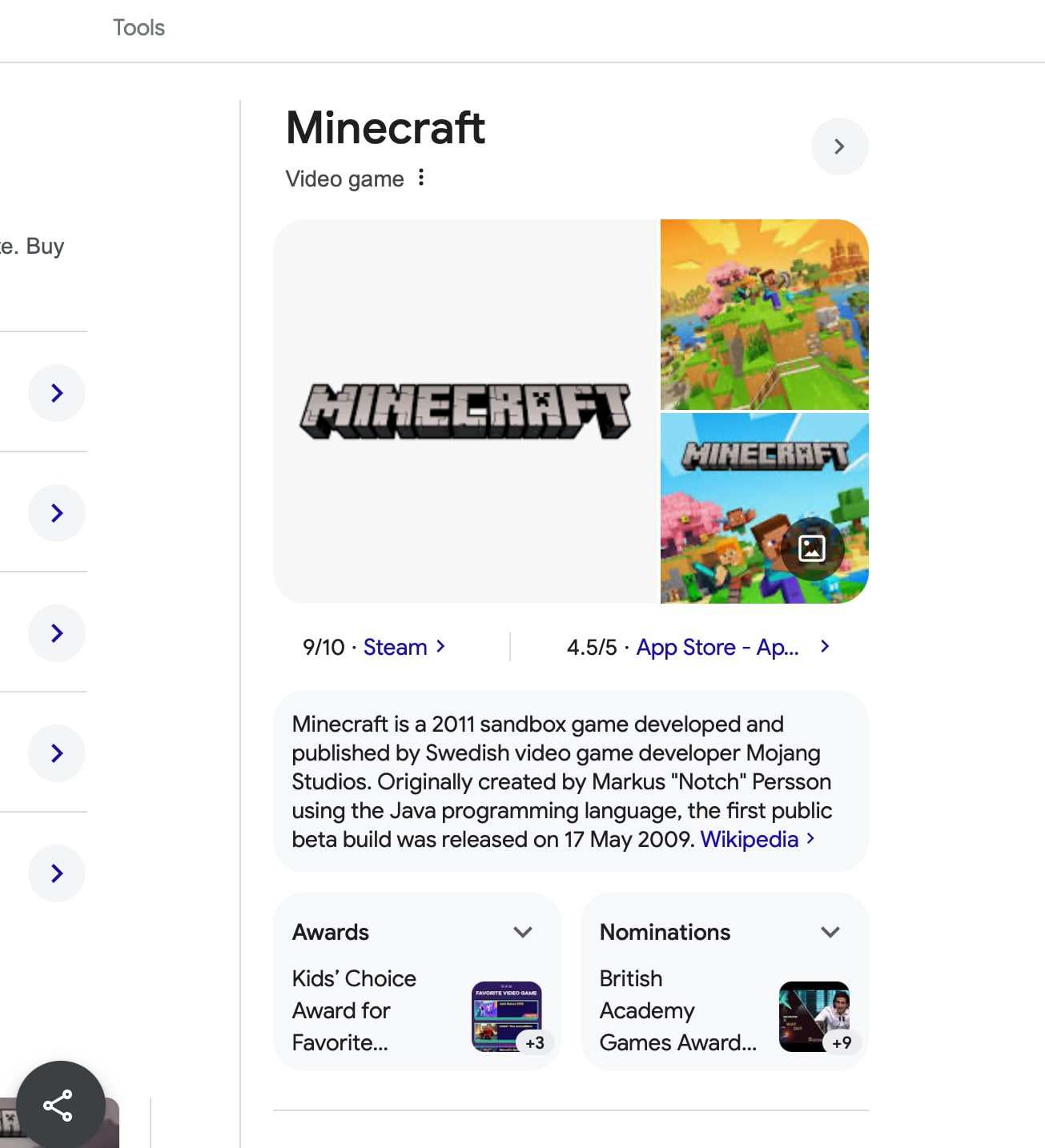
People also ask
This box appears somewhere between the organic search results. It’ll suggest questions related to the search query you typed in. You’ll encounter these related questions in the organic search results if you’re searching for Minecraft. Clicking on one of the suggestions will directly answer the specific question.
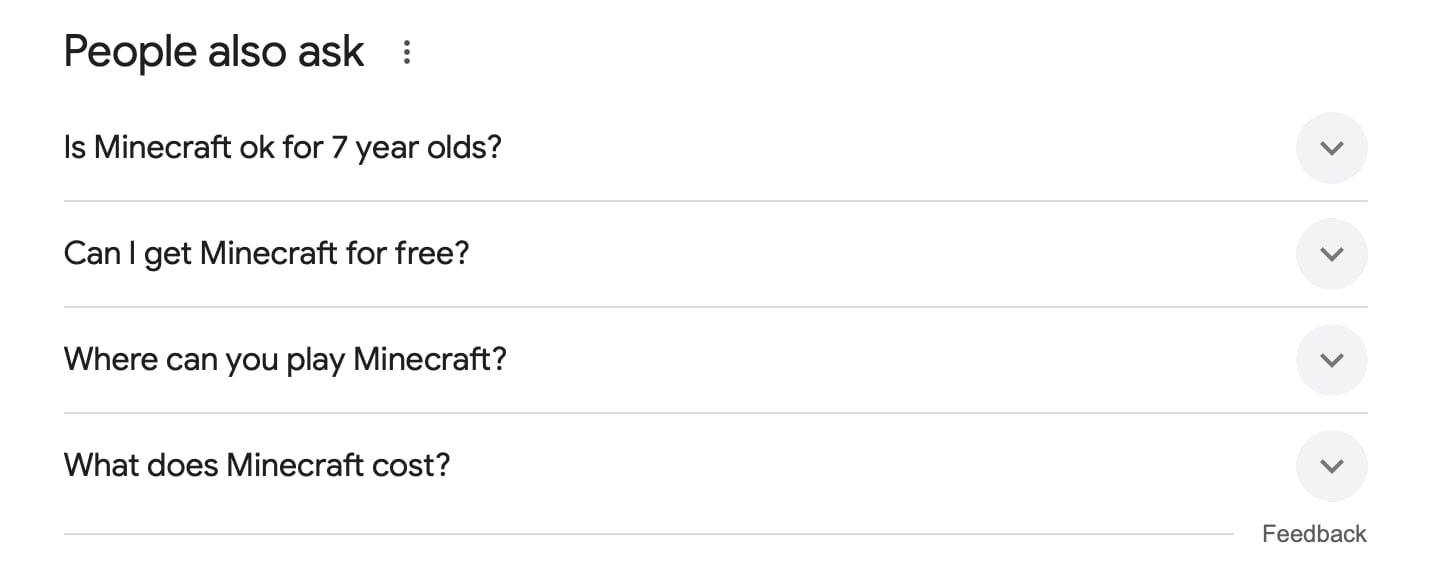
Featured snippets
A featured snippet, aka answer box, is a highlighted search box that answers the question you type in the Google search bar. This featured snippet box is situated above the regular organic search results. Featured snippets often appear as a paragraph or a bulleted list, accompanied by an image.
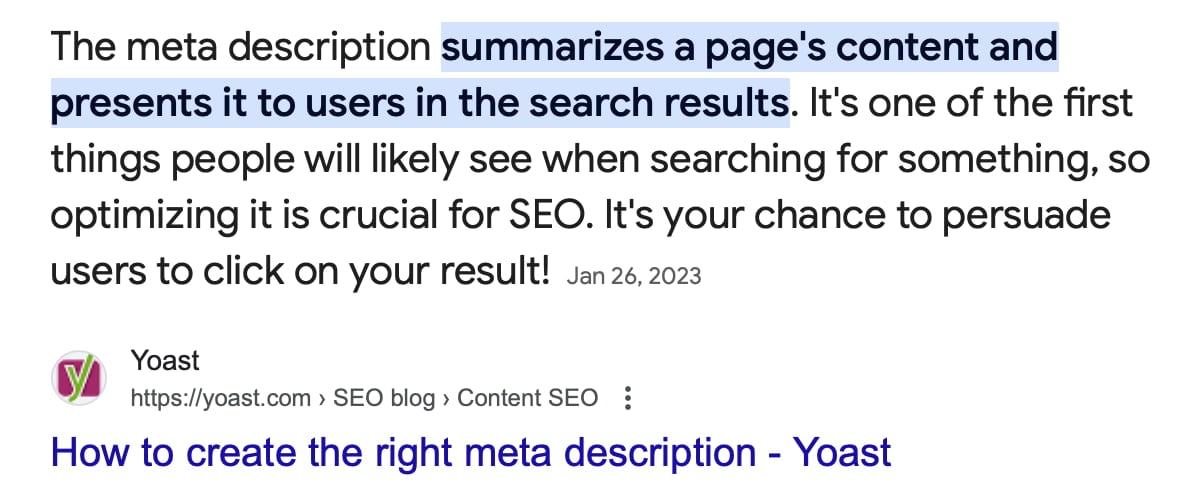
Keep on reading: How to get featured snippets »
Local 3-pack
When you search from something locally, the Local 3-pack can show up to highlight three related local businesses. It’s a Google search feature that provides information such as business names, addresses, phone numbers, and customer reviews. This feature is often integrated with Google Maps. It helps users find directions and learn more about local businesses.
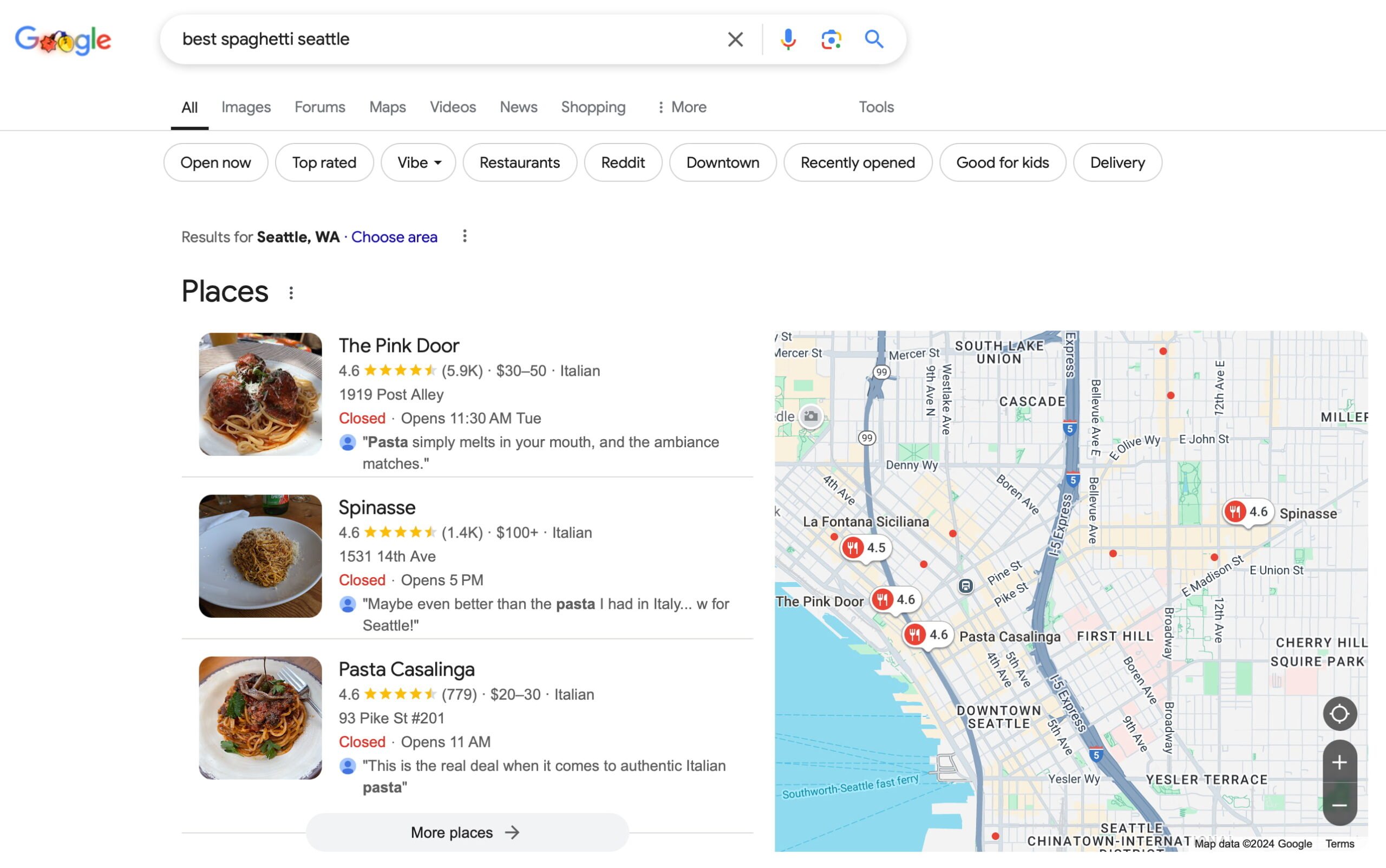
Image pack
The image pack search feature shows a collection of images related to a search. Typically shown in a grid or carousel format, they allow users to quickly browse visual content without leaving the search page. For some searches, images are a better fit than just regular links or other SERP features.
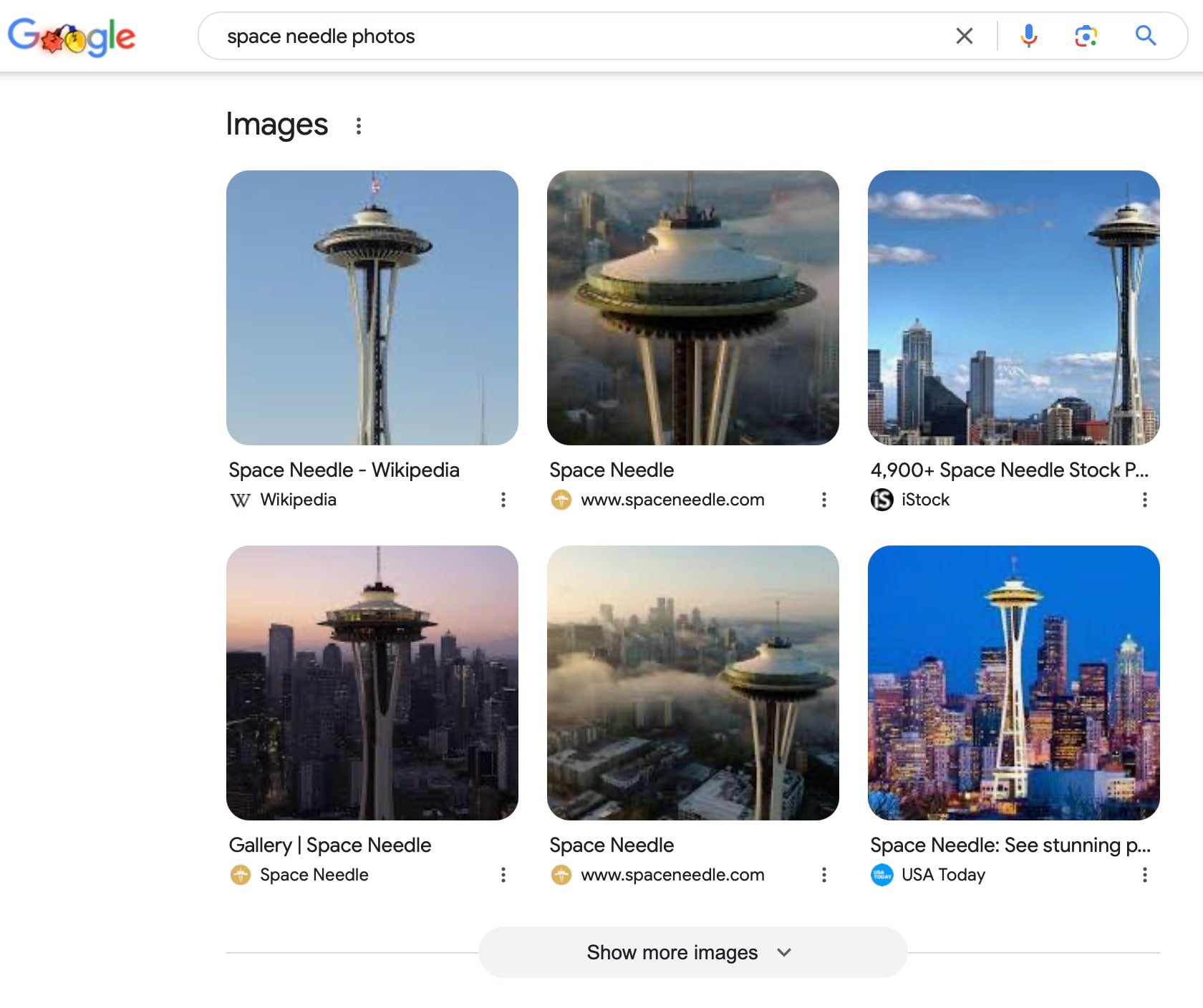
Top stories
Top stories is a search feature on Google that displays the most recent and relevant news articles. This section typically appears near the top of the search results, highlighting breaking news and timely updates. It includes headlines, publication names, and often images to quickly inform users about current events.
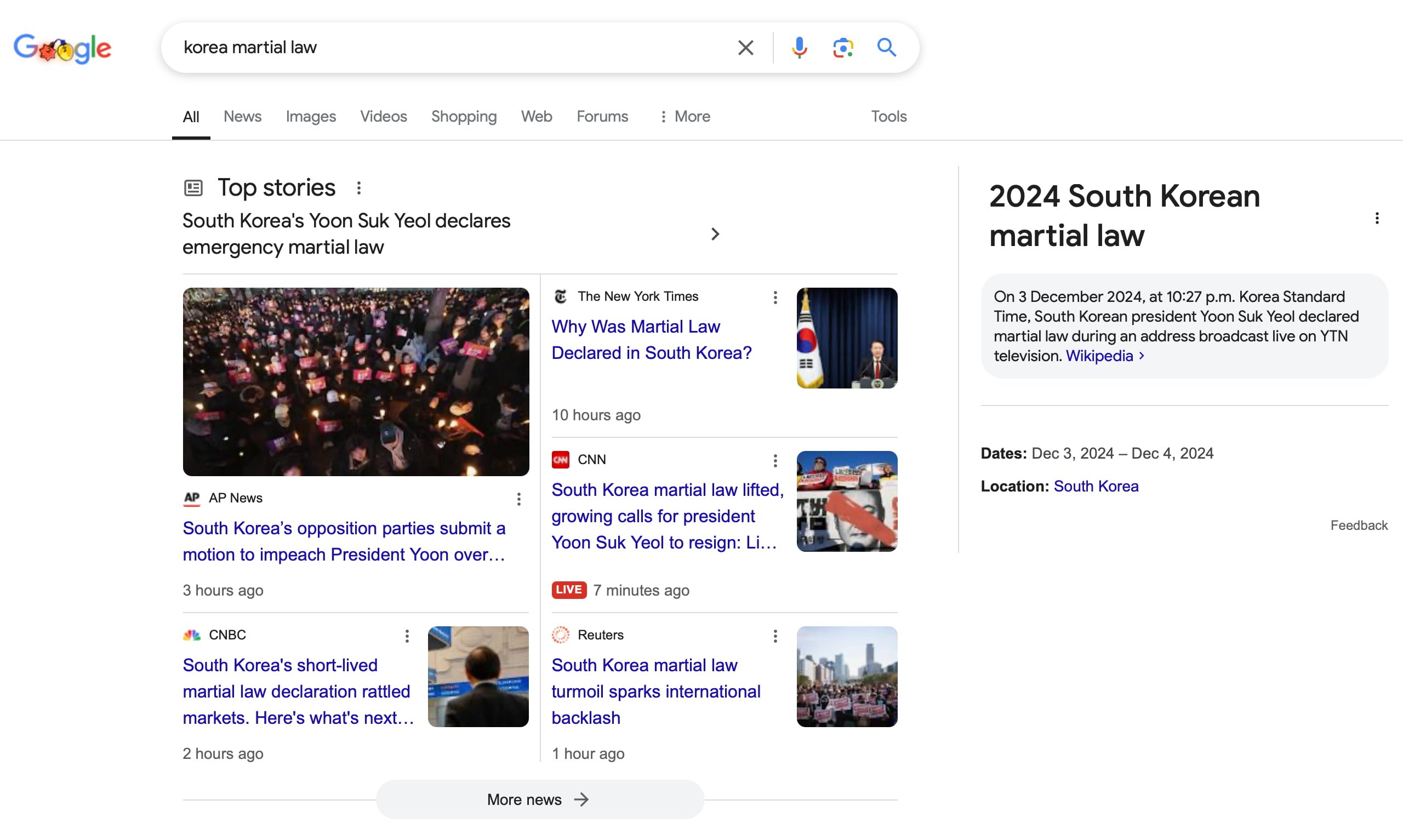
Conclusion about SERP features
Google’s search engine results pages can show various elements: the search results (so-called snippets), AI Overviews, a knowledge graph, a featured snippet, an answer box, images, shopping results, and more. Some of these elements will show up depending on the type of query and the data Google finds. You can add structured data to your page so Google can show a ‘rich’ snippet, providing more information about your product or recipe, for instance.
You can pay Google to make the snippet of your page end up high on the search results page as an ad. Or, you can optimize your pages for the search engines – and users! – so it will rank high organically. That’s SEO, and that’s what we write about!
Read more: Yoast SEO: how to make your site stand out in the search results »

